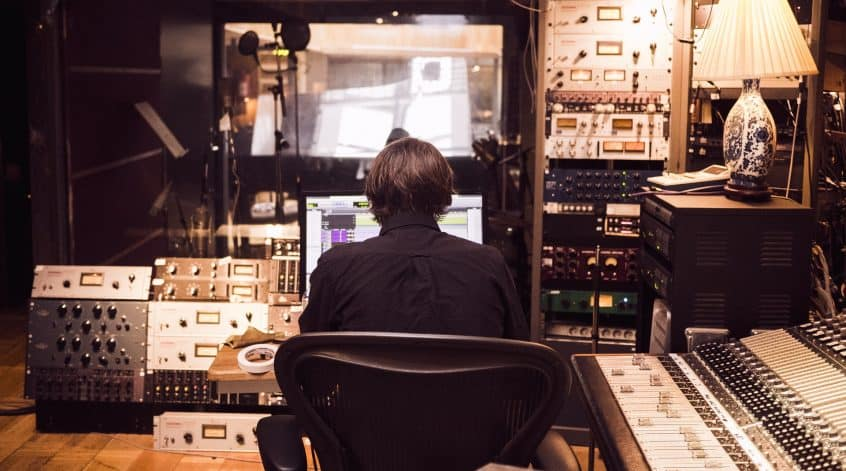Creating professional records just requires a laptop and a pair of decent-sounding headphones as equipment. However, music production is not just about the tools at your disposal but also the skill set you possess. And not all have these skills even if they’ve been fans of music all their lives. If you are considering becoming a music producer, make sure you have the following six essential skills.

Ear Training
Having a trained ear is essential to be a successful music producer or musician in general. Trained ears not just mean being able to differentiate between specific notes, intervals, and midi chords, but also the ability to comprehend the sounds that work cohesively in a song. If you cannot bring together song textures and passages in a musical and clear way, your music would invariably go down without a trace.
There are a couple of ear training methods: practicing ear training and taking notes. Practice will help you inculcate a more intuitive comprehension of elements you are exactly hearing in a track, and this shall help with constructing lots more conclusive musical passages. Learning more about intervals, midi chords, scales, etc. would help. If you need assistance with training your ears, find midi packs here. Taking notes, on the other hand, would help you understand the elements that go together and the reasons behind it.
Patience
If you cannot be patient enough with your music career and music, reaching your goals would take time. The most successful artists of the world have put in multiple years of hardship to become what they are today, even though it may look like their success was achieved overnight.
To develop patience, it’s important to not work too hard and long. A break is imperative every now and then so that your head is clear and your ears are fresh. Set up long- and short-term goals so that you could live through those difficult periods that you shall encounter during your career. With short term goals, you’ll have the motivation required to progress toward your long-term objectives.
Focus
Distractions are everywhere, and they come to the forefront more when you’re working from a computer. In the music industry, distractions won’t just be in the form of artists and their histrionics, but your own circle would be brewing fresh conflicts to worry about. Your friends, family and other people within your circle will mostly fail to understand that there are no set timings to your work.
To segregate your productive hours and downtime, manually scheduling things is important. This shall help you recharge and regain focus. Developing time management skills shall certainly help. No one other than you know what periods of the day you are the most productive. Therefore, schedule things accordingly.
Song-writing
Mixing a track well or making a song sound great is only part of the grind. The whole structure is what pulls in the listener. For improvements in songwriting and structure, go through the tracks you listen to regularly and assess their structure. Pull the tracks into your DAW to make markers every time a structural change happens. This is a solid way to visualize and break a song down.
Also, look at complete project files to glean important information. Prior to opening a track and checking its processing and automation, see the song’s structure and layout. It’s important to learn about songwriting and then coming up with your own writing style.
Mixing & Mastering
Before even mixing and mastering a tune, make sure the samples you have chosen are the best ones for every sound. This shall make mixing and mastering much easier. If you end up tweaking a sample track with loads of processing and EQ right away, you would be better off with another sample that is close to what you require.
Good samples aren’t enough. You need to put things in the correct places. Each sample must have a unique place in the composition and mix. The sample positioning should be such that the entire song is cohesive and flows well.
Networking
Burning a bridge could ruin a whole career. As a music producer, you would be dealing with individuals from diva artists, the label, and possibly press members as well as artist entourage. If you want to work with the right clients and record labels, putting yourself out there is important. Therefore, always make a conscious effort to befriend new people within the industry. You certainly must collaborate with the maximum number of artists you can, particularly when you have just arrived. If your name gets thrown up or mentioned in credits regularly, the big fishes would take notice and want to get to know you.























